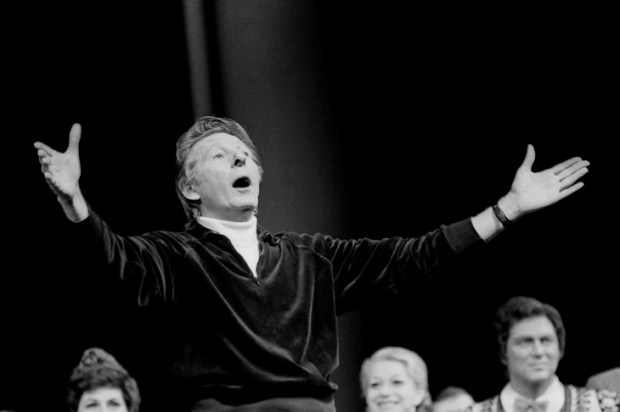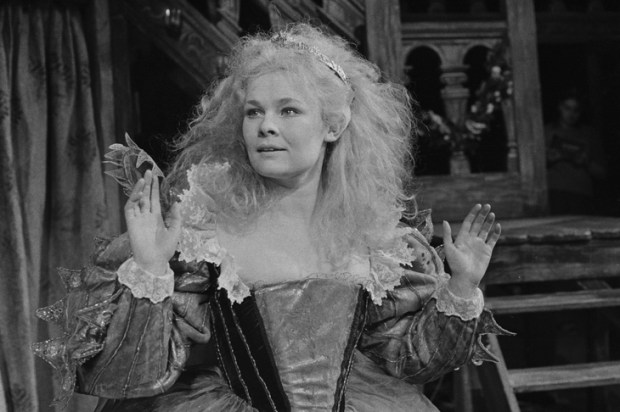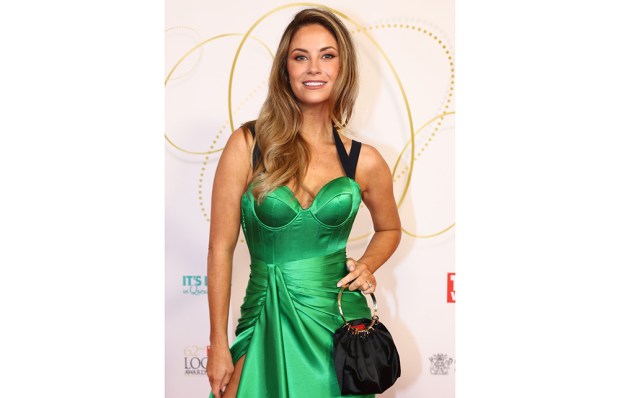Jonathan Mills’ opera Eucalyptus based on the superbly designed novel by Murray Bail has left audiences dazzled and rushing to see it again. It’s directed by that eminent man of the theatre Michael Gow and this production uniting the forces of Victorian Opera and Opera Australia has given audiences that sense of wonder and mystery that comes from the feeling that they are in the presence of a major work of art. So there are punters who have gone back to Melbourne’s Palais – to the stage where Nureyev first danced his Don Quixote with Helpmann, the actor-dancer to die for, as the tottering Don – to see what Jonathan Mills and conductor Tahu Matheson have made of this haunting musical drama which re-animates the casket myth through the archetypal Australian symbology of the gum tree. Name the varieties of eucalypt in this place and I will give you my daughter’s hand. It’s a work in which audiences have heard a range of echoes beyond the obvious literary one of The Merchant of Venice. Mills is a composer who lives up to the James Joyce description of an ‘allround cultured man’ and so it is natural that audiences should hear that primeval music (as of a world stirring into life) that seems empathic with and influenced by the opening of Wagner’s Das Rheingold but Eucalyptus is bound to be an encyclopaedic echo chamber of Jonathan Mills’ depth of passion for every kind of music. As a festival director first in Melbourne and then in Edinburgh (for which the Brits knighted him) he always made it clear that he simply wanted the best: every Bach cantata, Steppenwolf at the height of their powers and somehow the intensity and surefootedness of his passion for excellence was the outgrowth of the erudition and dynamised sense of the dappled beauty of his own music.
Eucalyptus seems to be one of those too rare moments when knowledge and artistry come together. Meredith Oakes’ libretto has commanded the respect of devotees of Murray Bail’s novel which is a brilliantly parodistic work, using a residual stiltedness as a strength.
In this production Desiree Frahn leads a distinguished cast of soloists and the heights she climbs and the notes she hits have convinced audiences that Ellen, the desired daughter and the object of the enumeration of the gums, is the opposite of passive, she is the impassioned mistress of her destiny and the combination of Murray Bail’s conception and Jonathan Mills’ musical realisation brought so powerfully to light by Desiree Frahn does lead to something like the stark Shakespearean calm of Portia who makes the highest claim with the greatest simplicity ‘You see me, Lord Bassanio, where I stand / Such as I am.’ It’s at once mysterious and self-evident when this kind of bareness can be achieved in the face of such elaboration and such wild and tumultuous manifestations of art.
And it’s a deep satisfaction to many people that this should all happen as an adaptation (and quite an unexpected one) of a work by one of our most distinguished writers, Murray Bail.
Writing was always the subject of the story with Jason Steger, who has finally left the job of being the literary editor of the Nine newspapers, the Age and the Sydney Morning Herald, after the better part of four decades in the job. He brought to the job an iron integrity and consistency and a considerable amount of the kind of patience and forbearance necessary for dealing with the frailties and ferocities of the literary world.
The party at Jimmy Watson’s in Lygon Street in his honour was inevitably a gathering of the clans. Jennifer Byrne with whom Jason did a literary TV show (with Marieke Hardy) was there and so was that distinguished duo from Simon & Schuster, publisher Ben Ball and CEO Dan Ruffino. Penny Hueston from Text who together with her husband Michael Heyward published Murray Bail for years was there. And so was Bail’s old friend Hilary McPhee who more or less invented what we now think of as Australian publishing back in the 1970s.
Of course, the highest level of literary achievement can come in the most improbable form. Think of Jane Austen. ‘Infinite riches in a little room’. Readers sometimes divide along gender lines. Was it Nabokov who described her as an old maid? All of which leads to the reflection that it was a very bright idea for Nadine Garner to do a one-woman show of Pride and Prejudice. Yes, there are memories of Greer Garson in the 1930s and Colin Firth as Mr Darcy in that wet shirt but it all comes from that extraordinary arrangement of words. Jane Austen is the Mozart of novelists, so apparently slight, so apparently light and carefree yet Leavis, the toughest of critics, revered her.
And Nadine Garner – without the elaborate mimetic brilliance (and vast resources) of the Ang Lee/Emma Thompson Sense and Sensibility – delighted audiences with the simple words of the text. Nadine Garner is a superb actress – sardonic, tender and with the greatest range and variation of tempo. There was a bit of period music but this was a one-woman show in the face of literary grandeur.
There has been a parade of one-woman shows. Noni Hazlehurst doing Mother, Red Stitch’s Iphigenia in Splott but it’s one way to go if you want to see drama inflect literature.
Helen Madden staged highly successful teams of actors and readers doing Homer. It would be fascinating to see a Patrick White modern classic – let’s say The Tree of Man – done by John Stanton with his beautiful muscular voice – and if you wanted to extend the cast you might have a duo and add Helen Morse. Madden in fact toyed with the idea of doing White in the wake of Homer but found that there was less enthusiasm for the Australian classic – a writer let’s remember who will bear comparison with Beckett or Nabokov – than there was for the blind bard of legend who with a little help from his friends invented it all.
It was interesting to read, when Peter Green (the English classicist not the Australian man of the theatre) died the other week at the age of ninety-nine, that Bob Dylan had apparently quite consciously paid him the compliment of lifting chunks of his Ovid – Shakespeare’s favourite poet – for some of his recent albums, such as Love and Theft and Modern Times.
Got something to add? Join the discussion and comment below.
You might disagree with half of it, but you’ll enjoy reading all of it. Try your first month for free, then just $2 a week for the remainder of your first year.













